
6 Hacks for Hard Conversations: How to Speak Honestly and Maintain Relationships in Difficult Situations
Everyone wants the secret sauce on how to easily have hard conversations.
Bad news: there isn’t one.
Good news: there are some hacks to help you prepare for hard conversations before you walk into them. As someone who has had their fair share of hard conversations, I’m here to share my tips.
Hard conversations are not for the faint of heart, and yet, they are CRUCIAL to succeeding as a leader and a professional.
Let’s face it. Typically, hard conversations are centered around feedback for someone else, and that is something that is just not natural for people. We are wired to run away from confrontation, and we will take every single possible chance to do so.
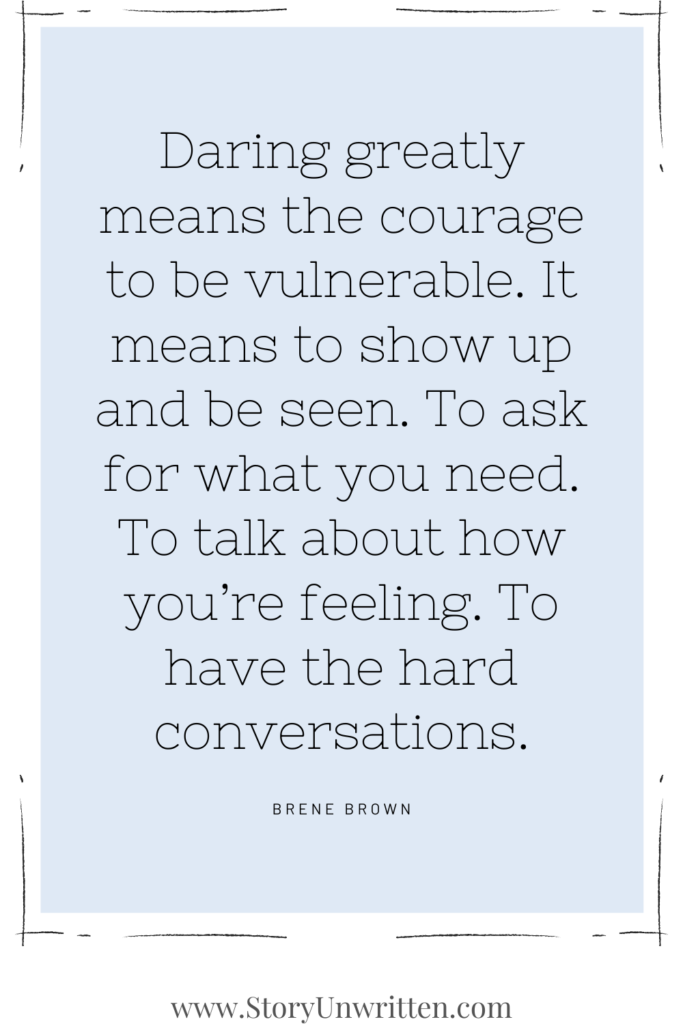
6 Hacks for Hard Conversations:
1. Do A Mental Self Check-In
Make sure you are in a good state of mind for the conversation.
Do not fly into a hard feedback conversation at the height of emotion.
An irrational reaction is just waiting to erupt, and the person you are talking to will not hear a word you say.
If you do not have the luxury of waiting and giving yourself time and space before having the hard conversation, simply pause and take a deep breath. Simple. Effective. Stop and breathe.
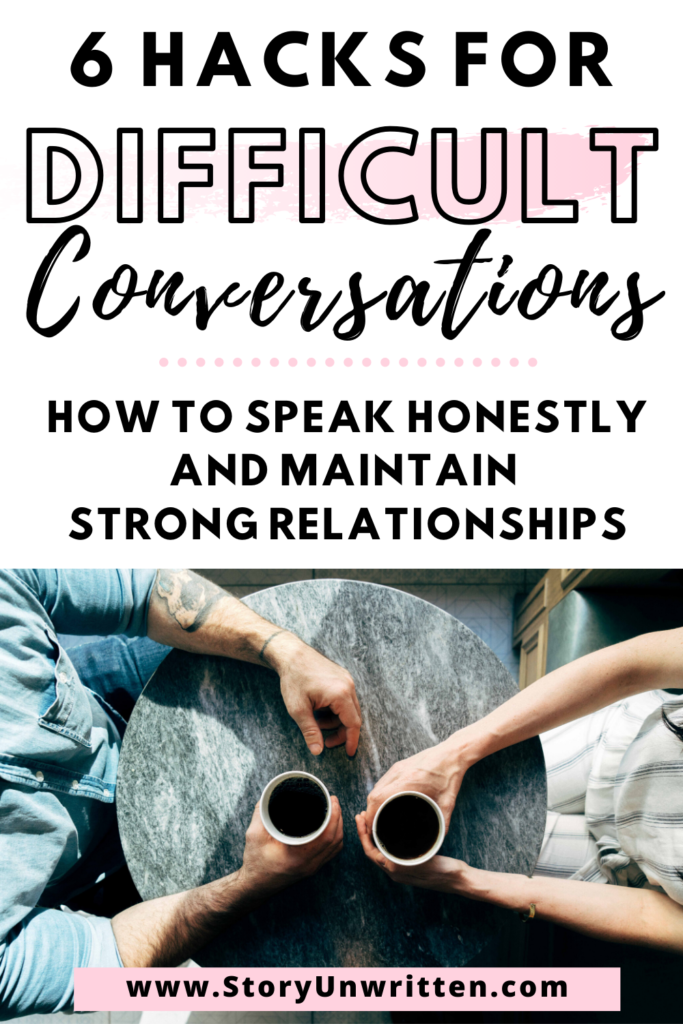
2. Consider the Other Person's Point of View
I call this the “Emotional Gemba Walk.” For all of you process improvement nerds, the Gemba Walk is a technique used in process improvement where the person studying a process will literally follow a process step by step for themselves. They will try to put themselves in the other person’s shoes to experience the way a process is done and analyze the process for wasteful activities. The term is Japanese and it means “real thing” or “real place.”
Ok, so what the heck do I mean by doing an “emotional gemba walk”??
It has nothing to do with wastefulness. It is an analogy I like to use to describe the way I walk through the other person’s emotional experience before having any hard conversations.
I walk myself back through an experience through their eyes, as best I can. Then I consider how they may have heard or seen things that caused them to act or speak the way they did.
With this perspective, I can imagine what may or may not be effective in the hard conversation I hope to have with them. I can attempt to understand their emotions, their triggers, their fears, and their desires.
I would never presume to fully or even accurately understand all of these things about someone else, but the point of the exercise is ultimately to remove myself from the passion of my own emotions and open my mind to the possibility that I am part of the problem as well.
It triggers my empathy and self-awareness, and I’ve found that’s critical to approaching hard conversations in the right mind set.
3. Write a Conversation Outline and Practice
Regardless of whether or not I use it, I find it very helpful to write down my thoughts ahead of time so that I don’t walk into a conversation without any idea of what I want and need to say.
It doesn’t truly need to be a full-on script, but just bullet points that cover the meat of the conversation. I also write down questions I might ask the other person to fully understand where they’re coming from or how I might support them, if appropriate.
I’ll take a moment to talk through the conversation in my head and even consider the different directions the conversation might go:
- What are the possible responses or rebuttals that may come up?
- What questions might I have to answer?
- What is really important for me to say, even if the other person apologizes and takes ownership?
I want to be as prepared as possible because I find that the most likely scenario for me to say something I regret, big or small, is when I’m caught off guard, get defensive, and respond off the cuff without thought.
This step could seem excessive or overwhelming, but really, it’s just jotting down a few notes and reflecting on the most important things you want to say and the possible directions the conversation could take. It ensures thoughtful conversation that includes the things that are so important and hard to say.
4. Have Hard Conversations Before They Fester
Ugh. This one’s hard too. But I highly recommend you take action as quickly as possible when you’re ready to have the conversation.
Don’t put it off and let it fester, harboring bitterness and anxiety.
It’s not good for your own wellness, it damages your relationship with the person (possibly without them knowing so), it makes room for poisonous gossip, and it increases the likelihood that some other mitigating factor will pop up or a repeat offense will occur that throws you even further off track or down a path of resentment.
Only you can lift that weight from your own shoulders, so take heart and go!
5. Listen, Listen, then Talk.
Once you’ve begun a hard conversation, make plenty of room in the conversation for the other person to talk.
Your goal should be to listen more than you talk.
Let them share their perspective, and be ok with silence. Silence is uncomfortable, but hard conversations require pauses for people to absorb the information, reflect, and then respond.
In fact, don’t be surprised at all if you see a mini super-speed version of the stages of grief or at least some of them.
Be respectful in your tone and your demeanor, keep your cool, and do your very best to receive what the other person is telling you. You do not have to agree with them! But at least acknowledge their point of view (remember that Emotional Gemba Walk you did earlier? That was preparing you for this.)
Help the other person feel heard, and many times you will gain and maintain their respect and trust.
6. Follow Up After Your Hard Conversations
Try to set ground rules for moving forward with the other person during hard conversations.
What are your expectations of that person as a colleague, a friend, or even a family member? Use phrases like, “I would appreciate it if you moving forward. Is that something we can agree on?”
You need to request the change of behavior outright so that your intentions are clear and you get acknowledgment and accountability with the other person.
And be ready for it: the other person will likely have a request of you! You may even open the door for that and ask, “Is there anything I can change or do for you moving forward to make sure our relationship stays strong or you feel supported?”
These questions can look like a wide variety of fill-in-the-blanks. The point is, ask for what you want and be ready to offer a change for the other person as well.
That’s it! Those are the six hacks. Simple, right? Ha.
Everyone who’s ever had a hard conversation knows that it doesn’t go smoothly, or as anticipated, every single time. Maybe even less often than not. But the preparation, my own mindset, and the content I bring to the conversation are things in my sphere of control. The receptivity and reaction of the other person is unfortunately not in my control, but I can certainly tip the scales in my favor.
It doesn’t take a genius to know that if I fly into someone else’s office in a rage and yell at them, I’m going to get a completely different conversation (or lack thereof), than if I calmly collect my thoughts and approach someone in a way that makes them feel secure and respected. The outcomes of those two “conversations” are wildly different, and I do have some control there.
There is no magic formula for every potential outcome in a hard conversation, but in my experience, these 6 hacks have helped put me in the right mindset for a kind and respectful conversation.
With these tools, I am empowered to say what I need to say, when I need to say it.
Take heart, friends, and speak the truth with genuine kindness, humility, and courage!
THIS WEBSITE CONTAINS AFFILIATE LINKS, WHICH MEANS THAT IF YOU CLICK ON A PRODUCT LINK, I MAY RECEIVE A COMMISSION. THIS WEBSITE IS A PARTICIPANT IN THE AMAZON SERVICES LLC ASSOCIATES PROGRAM, AN AFFILIATE ADVERTISING PROGRAM WHERE I EARN ADVERTISING FEES BY LINKING TO AMAZON.COM.
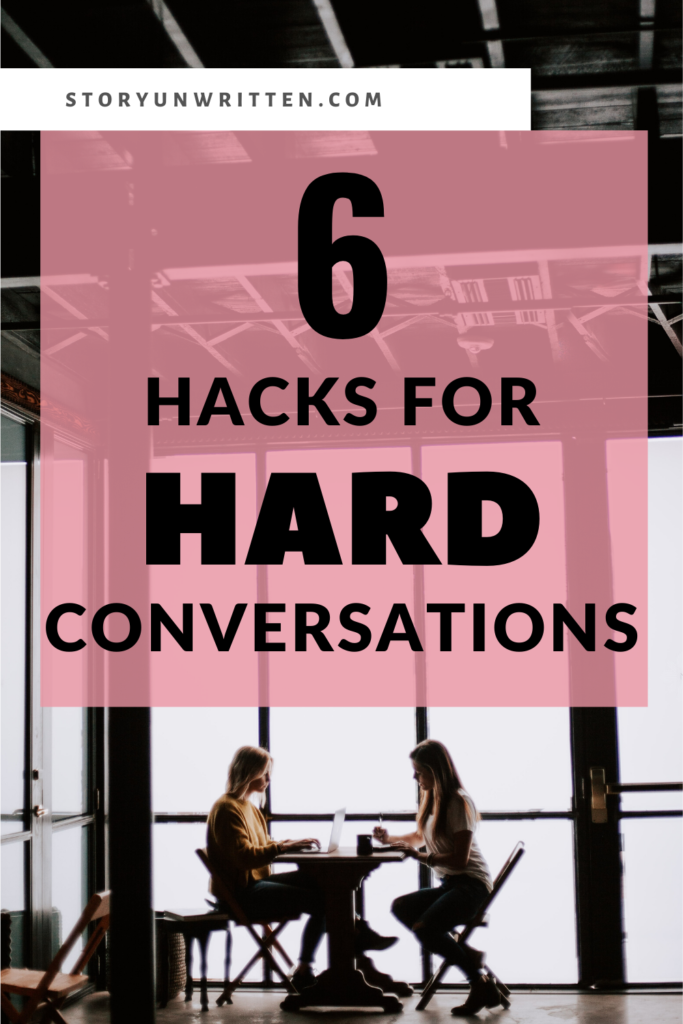
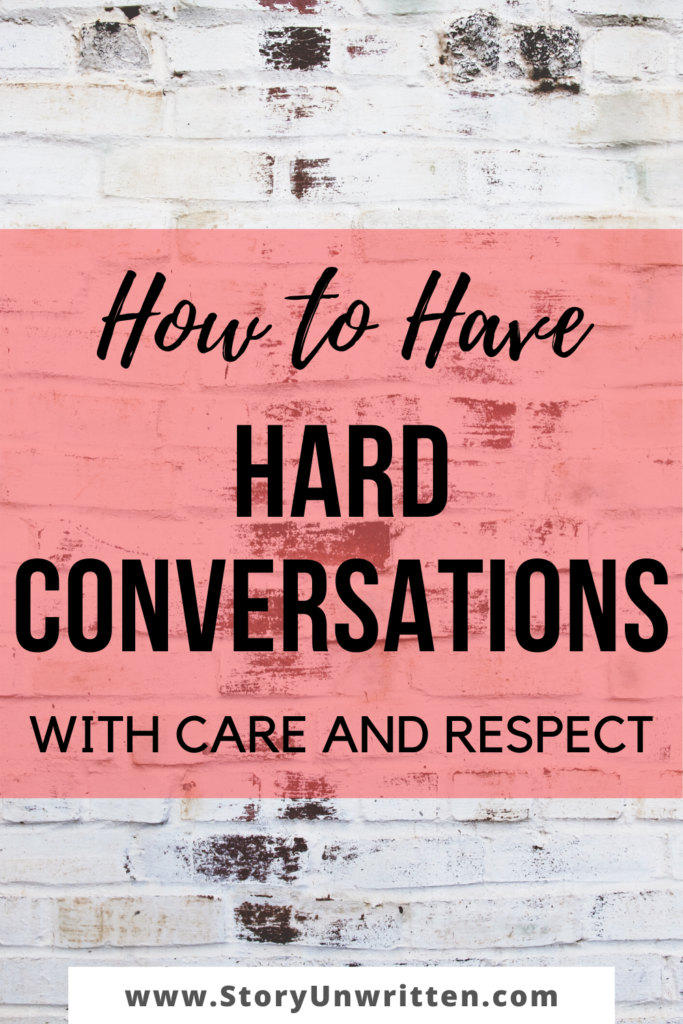
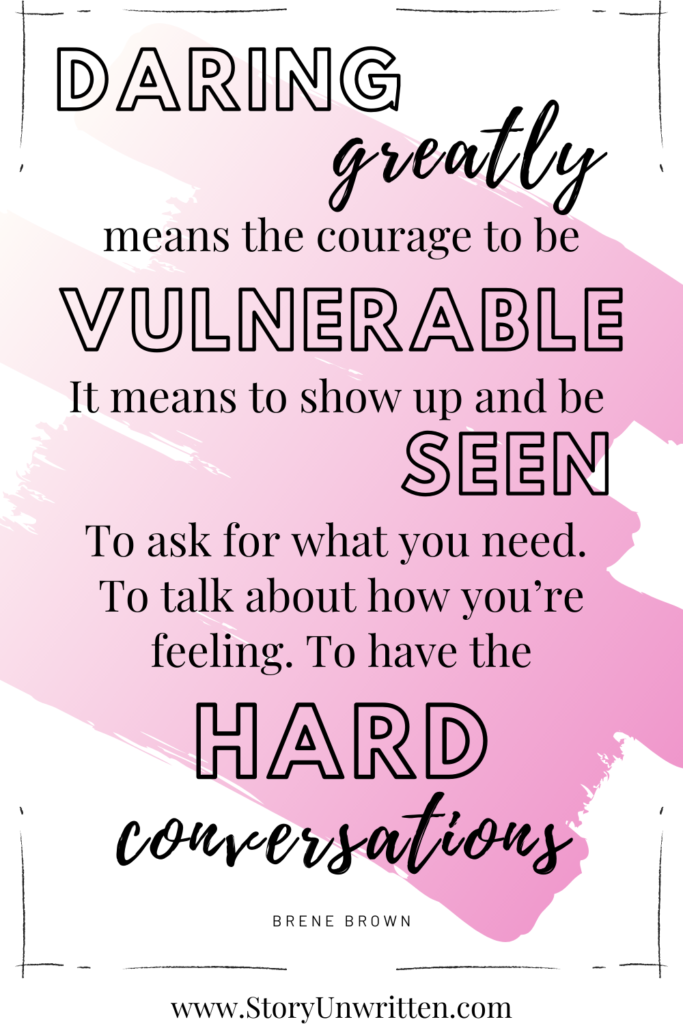
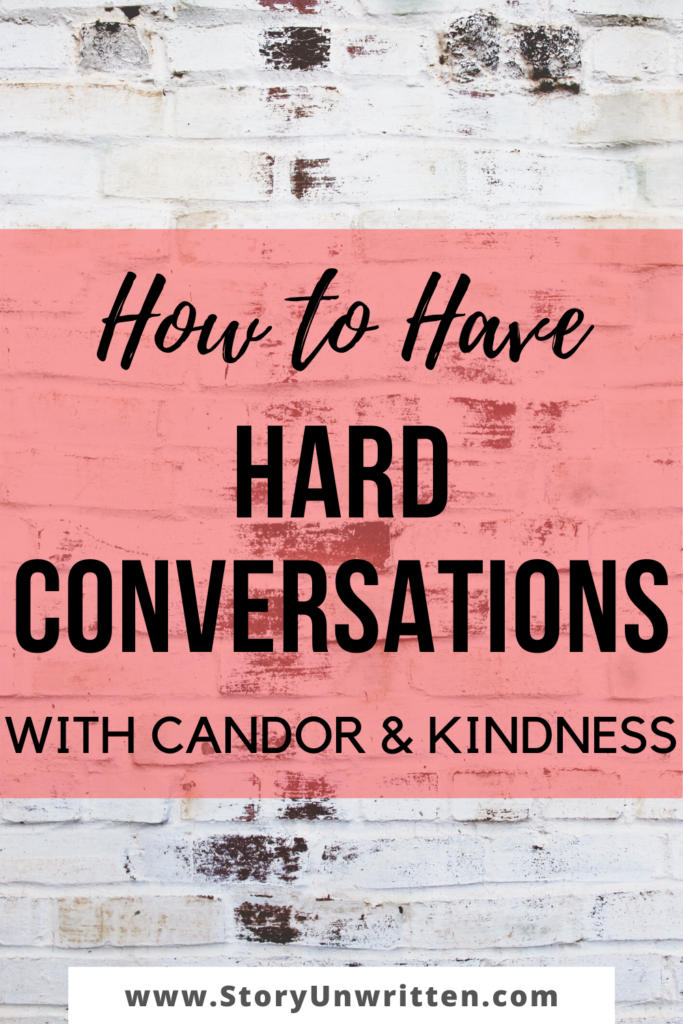


You May Also Like

The Most Effective Ways to Maintain Work Life Balance (and sanity!) While Working from Home with Kids
April 23, 2020
Top 5 Skills to Adapt and Shine at Work During Uncertain and Rapidly Changing Times
March 16, 2020
3 Comments
A Capone Connection
This article is perfect! First, I love Brene Brown so there’s that. Second, before reading her book Braving the Wilderness I had a really hard time with being true to myself if it meant there would be confrontation. Thank you for sharing these useful tips!
Caitlin
Thank you for the kind comment – I’m so glad you found it useful!
Pingback: